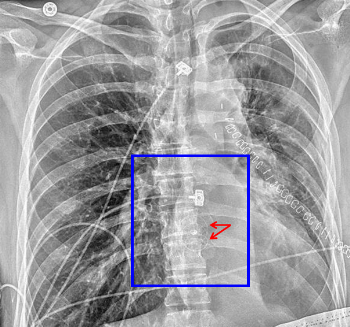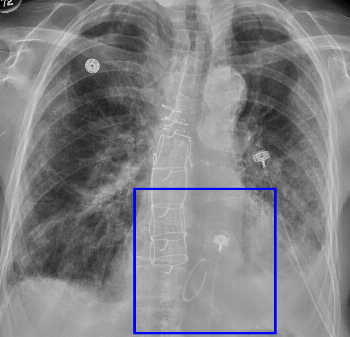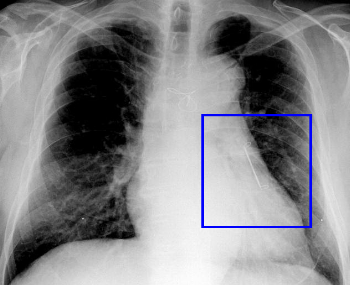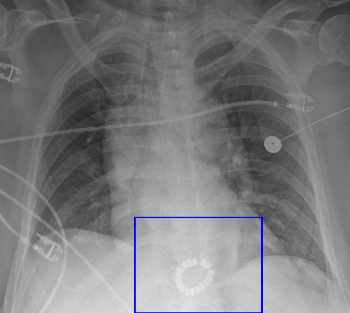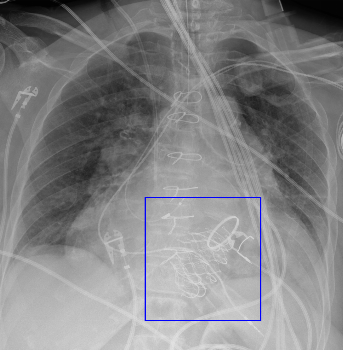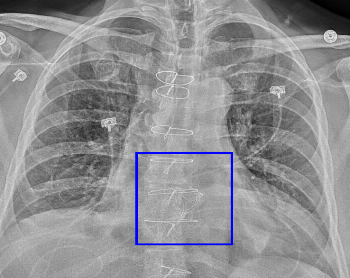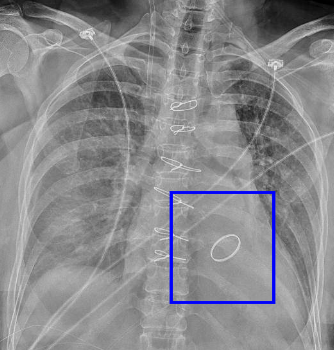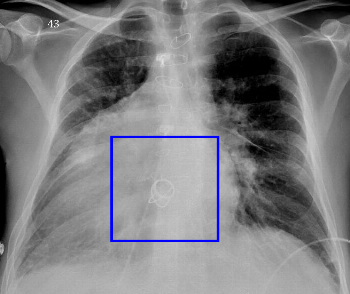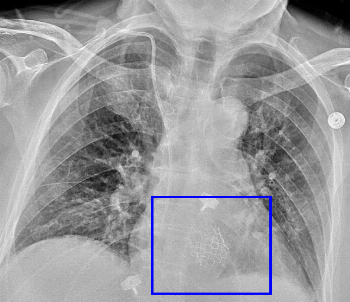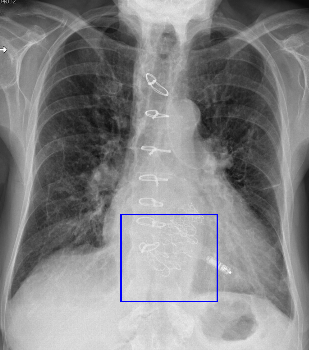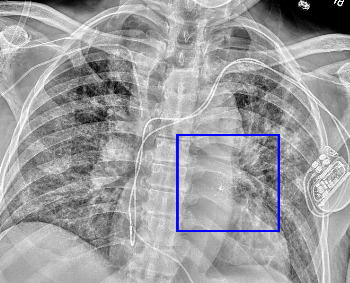Amplatzer ASD Closure Device
Endovascularly placed device to occlude an atrial septal defect. Appears as 2 faint circular objects connected by a small radiopaque line (these lie on either side of the defect). May be used to occlude VSDs and other holes, as well.
Annuloplasty
Annuloplasty rings are used to narrow and reform the shape of a dilated, regurgitant valve. These are typically used for the mitral and tricuspid valves. They are often distinguished by an incomplete radiopaque ring.
This is a tricuspid annuloplasty.
AtriClip
Left atrial appendage clip to occlude the appendage in patients with atrial fibrillation (to prevent embolism of thrombus).
Linx
Anti-reflux ring for the distal esophagus
Percutaneous Tricuspid Valve
This is an Evoque percutaneously placed tricuspid valve prosthesis
Prosthetic Aortic Valve
May have mechanical or biologic leaflets. This valve is bioprosthetic.
Prosthetic Mitral Valve
May have biologic (bioprosthetic) or mechanical leaflets. This example is a mechanical valve, although the leaflets are not clearly visible.
Starr-Edwards Mechanical Valve
Older variety of mechanical valve with ball and cage design. This example is an aortic valve prosthesis in a patient with DORV and dextrocardia.
Transcatheter Aortic Valve Replacement
also known as TAVR or TAVI. Endovascularly placed bioprosthetic aortic valve for aortic stenosis. There are several different models but all have an outer wire mesh (stent) and radiolucent leaflets.
Transcatheter Tricuspid Valve
This is the Evoque transcatheter tricuspid valve prosthesis. The patient also has a TAVR.
Watchman
Left atrial appendage occluder (the cage plugs the opening of the appendage).
